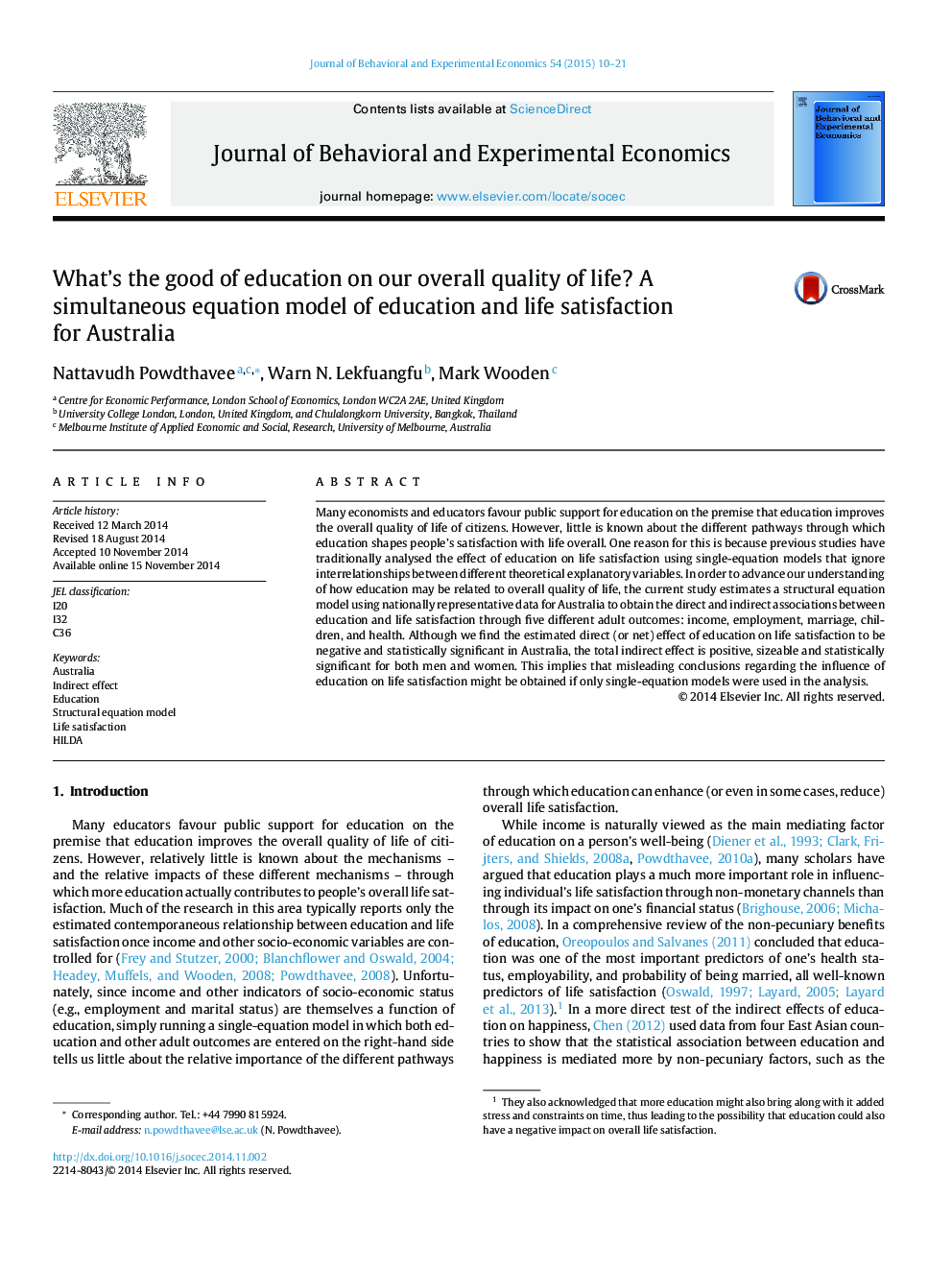| Article ID | Journal | Published Year | Pages | File Type |
|---|---|---|---|---|
| 881871 | Journal of Behavioral and Experimental Economics | 2015 | 12 Pages |
•We ask how education is linked directly and indirectly to life satisfaction.•A structural equation model is estimated for the Australian case.•The direct effect of education on life satisfaction is negative and significant.•More education is linked to higher life satisfaction through income and health.•Single-equation models can produce misleading conclusions on the role of education.
Many economists and educators favour public support for education on the premise that education improves the overall quality of life of citizens. However, little is known about the different pathways through which education shapes people's satisfaction with life overall. One reason for this is because previous studies have traditionally analysed the effect of education on life satisfaction using single-equation models that ignore interrelationships between different theoretical explanatory variables. In order to advance our understanding of how education may be related to overall quality of life, the current study estimates a structural equation model using nationally representative data for Australia to obtain the direct and indirect associations between education and life satisfaction through five different adult outcomes: income, employment, marriage, children, and health. Although we find the estimated direct (or net) effect of education on life satisfaction to be negative and statistically significant in Australia, the total indirect effect is positive, sizeable and statistically significant for both men and women. This implies that misleading conclusions regarding the influence of education on life satisfaction might be obtained if only single-equation models were used in the analysis.
